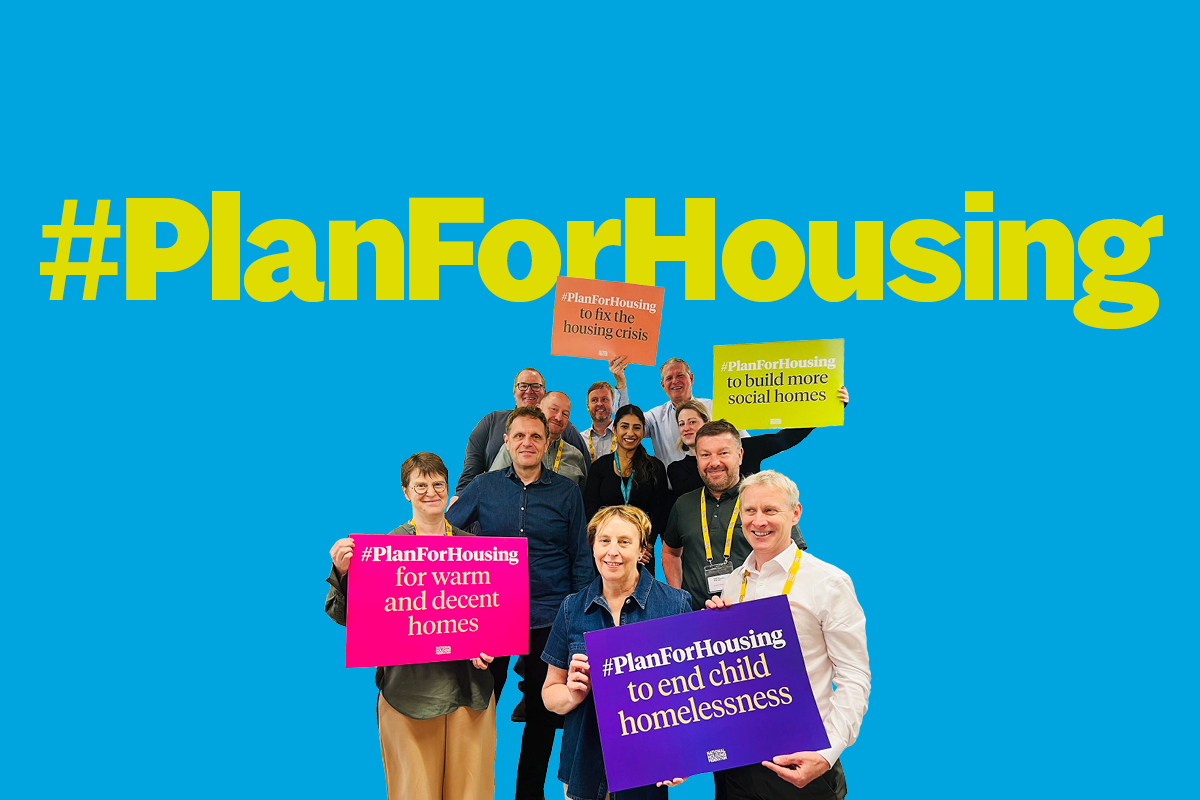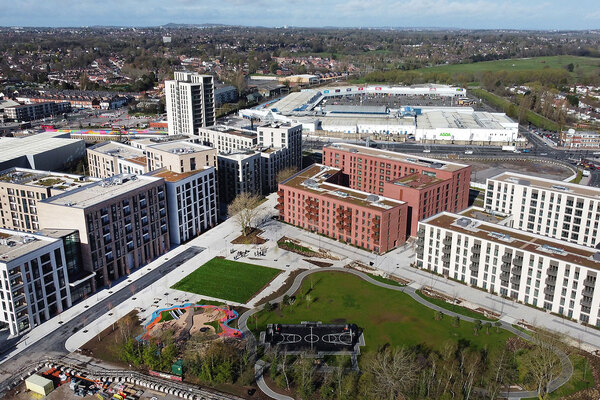You are viewing 1 of your 1 free articles
2025 will be one of the most pivotal years in living memory for the housing sector
Nick Atkin, chief executive of Yorkshire Housing, shares his thoughts on the key challenges and opportunities the housing sector faces in 2025
After the uncertainty of 2024’s big election year, 2025 will be the year the government gets down to business.
Housing associations will have to navigate a rapidly changing landscape shaped by policy updates, continued economic uncertainty and increasing financial pressures, alongside a number of new opportunities from a government that clearly has a strong focus on housing and wants to get things done.
Key to this will be helping the government understand the ingredients needed if we are to turn its ambitions into a reality. The primary ingredient continues to be more long-term investment in affordable homes.
A new political and economic landscape
2025 will be a year of change and opportunity, driven in part by the government’s Spending Review and long-term housing strategy. While there’s plenty of talk about prioritising housing, particularly affordable housing, slogans and good intentions don’t build and improve homes.
Yes, new homes are important, but let’s not forget the homes we already have. A balanced approach is crucial, one that focuses on increasing the supply and availability of affordable homes while maintaining and renewing existing ones.
A sustainable housing strategy is about more than quantity; it’s about creating homes that last for the generations of families who will come after us.
“We need bold, long-term decisions from the chancellor. Our main ask must be the reclassification of investment in housing as infrastructure”
We need bold, long-term decisions from the chancellor. Our main ask must be the reclassification of investment in housing as infrastructure, alongside a commitment to a decade-long rent settlement. Only then can we move away from the stop-start funding approach of the past 30 years and start to help the government deliver the “biggest boost to affordable homes in a generation”.
The housing sector needs to be flexible as opportunities emerge. But we also need to advocate for the big, bold changes necessary to tackle the housing crisis head-on.
Navigating reforms and legislation
2025 will be a busy year as we navigate a wave of reforms, consultations and new legislation. The upcoming Planning and Infrastructure Bill promises to boost housing and infrastructure delivery, alongside recent changes to the National Planning Policy Framework.
Key reforms like mandatory housing targets, a default ‘yes’ to brownfield development, and the new ‘grey belt’ category for underutilised green belt land could be game changers, but only if implemented effectively.
A review of the Decent Homes Standard, the introduction of Awaab’s Law and the long-awaited Renters (Reform) Bill will require collaboration and careful planning to strike a balance between protecting tenants, housing quality and financial sustainability.
The government’s long-term housing strategy
The launch of the government’s long-term housing strategy is one of 2025’s most anticipated announcements. While its ambition to tackle affordability, supply and sustainability is long overdue, the devil will be in the detail.
The focus on devolved decision-making is encouraging and builds on the proposals in the English Devolution White Paper. However, this shift will place even greater importance on the partnerships between housing associations, local authorities and mayors. Housing needs to have a seat at the table, shaping plans that reflect the lived experience of our tenants and the communities we serve.
For housing associations, a new strategy also presents opportunities to lead the way in innovation. From modular construction to using the latest technology to decarbonise our homes, there’s potential to showcase how we can deliver homes that meet the needs of today without compromising the future.
The announcement, expected in the sprummer (yep, you read this correctly – it’s a new term to explain the merged timeline between spring and summer) will reveal whether this strategy can deliver meaningful results. If implemented effectively, it could pave the way for lasting change.
Devolution and local leadership
Devolution will take centre stage in 2025, with the government’s English Devolution White Paper empowering regional authorities and mayors to drive housing, infrastructure and skills development.
This presents an exciting opportunity for housing to collaborate more closely with regional leaders. We can address challenges like housing shortages and urban regeneration more effectively, and align with economic strategies to maximise the benefits of regional decision-making for local people.
But it requires a shift in mindset. We can’t rely on top-down policies. Instead, we need to build on our existing strong relationships with local leaders, understand their unique challenges and co-create solutions that make a real difference.
Regulatory pressures
We are approaching what feels like a peak in regulatory activity in the cycle this follows. Whether it’s building safety, tenant satisfaction measures or environmental standards, the housing sector continues to navigate a growing list of compliance requirements.
“We need to embed compliance into culture, not just processes. That means going beyond minimum standards and striving to deliver the very best service. It’s about doing what’s right, not just what’s required”
All this means we need to embed compliance into culture, not just processes. That means going beyond minimum standards and striving to deliver the very best service. It’s about doing what’s right, not just what’s required.
And yes, it’s a tall order, but it’s also an opportunity to demonstrate the value of social housing in a rapidly changing world.
Digital transformation and AI
The digital revolution continues, and for housing associations, it’s no longer optional. Technology is already transforming how we work, from self-service portals to predictive maintenance, but there’s still lots more we can, and should, do.
We know there are challenges for some, especially around digital exclusion. As we innovate, we must ensure our solutions are accessible for everyone, investing in digital skills and bridging the gap where this exists.
We also need to embrace artificial intelligence (AI) and the huge opportunities this offers to transform our service offer. There is huge potential to increase efficiency, enhance tenant services and make data-driven decisions while ensuring we are mindful of the ethical risks that exist.
Striking the right balance between technology and human interaction will be critical. Housing is, at its core, a people business. Digital tools should act as enablers and enhance relationships, not replace them.
Sustainability and retrofitting
Sustainability looms large in 2025. With the UK’s homes accounting for 26% of greenhouse gas emissions and one in six homes being social rented, we all have a responsibility to act.
Retrofitting our homes is a huge task, requiring far more funding than is currently available. It’s not just about upgrades; it’s about rethinking how we design, build and manage our homes while helping tenants to reduce their energy usage and put more money back in their pockets.
This will take collective action through a long-term plan underpinned by substantial investment. But all the evidence over the past few years highlights how the stakes couldn’t be higher. We can’t afford not to do this.
Looking ahead
2025 will be one of the most pivotal years in living memory for the housing sector.
Yes, the challenges are significant, but so are the opportunities. This year is about focusing on what we can do: taking bold steps to build homes, transform lives and create a lasting impact for generations to come.
This feels like a once-in-a-generation opportunity. We need to grasp it with both hands.
Nick Atkin, chief executive, Yorkshire Housing
Sign up for our daily newsletter
Already have an account? Click here to manage your newsletters













